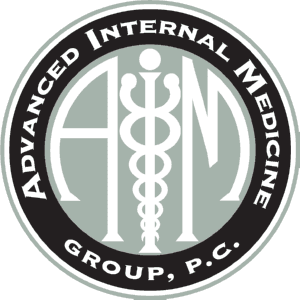February is American Heart Month, a time that serves as a reminder to prioritize cardiovascular well-being and adopt lifestyle changes that promote a healthier heart. In this blog from AIM Group in NYC, we’ll explore practical steps to create a heart-healthy lifestyle for you and the entire family.
Understanding the Importance of Heart Health
Before delving into lifestyle changes, it’s crucial to understand why prioritizing heart health matters. Heart disease remains a leading cause of death globally, emphasizing the need for proactive measures. Adopting a heart-healthy lifestyle can significantly reduce the risk of cardiovascular diseases, ensuring a longer and healthier life.
- Nourish Your Body with Heart-Healthy Foods: A cornerstone of a heart-healthy lifestyle is maintaining a well-balanced and nutritious diet. Emphasize fruits, vegetables, whole grains, lean proteins, and healthy fats in your meals. Consider incorporating omega-3 fatty acids found in fish, flaxseeds, and walnuts, known for their heart-protective benefits. Reducing sodium intake and moderating alcohol consumption also contribute to a healthier heart.
- Stay Active: Physical activity is a powerful ally in maintaining cardiovascular health. Aim for at least 150 minutes of moderate-intensity exercise per week, such as brisk walking, swimming, or cycling. Regular exercise helps lower blood pressure, manage weight, and strengthen the heart muscle. Find activities you enjoy to make staying active a sustainable part of your routine.
- Manage Stress Effectively: Chronic stress can take a toll on your heart. Practice stress-management techniques like meditation, deep breathing exercises, or yoga to promote relaxation. Prioritize self-care and allocate time for activities that bring joy and relaxation. Adequate sleep is also crucial for stress reduction and overall heart health.
- Quit Smoking: If you smoke, quitting is one of the most impactful decisions you can make for your heart. Smoking damages blood vessels, reduces oxygen in the blood, and increases the risk of heart disease. Seek support from friends, family, or a smoking cessation program to make this life-changing step.
- Regular Health Check-ups: Regular health check-ups are essential for early detection of potential heart issues. Monitor blood pressure, cholesterol levels, and other relevant markers regularly. Consult with healthcare professionals to create a personalized plan for managing and improving your heart health.
- Build Strong Connections: Maintaining healthy relationships and social connections positively impacts heart health. Strong emotional bonds contribute to lower stress levels and provide a support system during challenging times. Cultivate meaningful connections with friends, family, and community to promote overall well-being.
- Limit Alcohol Consumption: While moderate alcohol consumption may have some cardiovascular benefits, excessive drinking can lead to high blood pressure, heart failure, and other cardiovascular issues. If you choose to drink, do so in moderation, and be mindful of its impact on your overall health.
Ways For The Whole Family To Be Heart-Healthy
Preventing heart disease is a collective effort that begins within the family unit. When families prioritize heart health, they create an environment that fosters healthier lifestyles for every member. By instilling heart-healthy habits from an early age, families can significantly reduce the risk of cardiovascular issues and promote overall well-being.
- Family-Friendly Physical Activities: Encourage regular physical activity as a family. Plan outdoor activities such as hiking, biking, or playing sports together. This not only promotes cardiovascular health but also strengthens family bonds. Choose activities that everyone enjoys to make staying active a fun and inclusive experience.
- Nutrient-Rich Family Meals: Transform mealtime into an opportunity for nutritious choices. Plan balanced meals that incorporate a variety of fruits, vegetables, whole grains, and lean proteins. Involve children in meal preparation to teach them about the importance of wholesome ingredients and instill a lifelong appreciation for healthy eating.
- Limit Screen Time: Excessive screen time, especially sedentary activities, can contribute to a more sedentary lifestyle. Implement screen time limits for all family members and encourage alternative activities like reading, playing board games, or engaging in creative hobbies. This not only reduces the risk of a sedentary lifestyle but also fosters positive family interactions.
- Lead by Example: Parents play a pivotal role as role models for their children. Demonstrate healthy habits by leading an active lifestyle, making nutritious food choices, and prioritizing self-care. Children are more likely to adopt heart-healthy behaviors when they witness them in their parents.
- Regular Family Health Check-ups: Schedule regular health check-ups for every family member. Monitoring blood pressure, cholesterol levels, and other relevant markers is essential for early detection and prevention of heart issues. Family health check-ups also create a sense of accountability and reinforce the collective commitment to cardiovascular well-being.
Importance of Family-Centric Heart Disease Prevention
Preventing heart disease within the family is not just about individual health; it’s about creating a culture of well-being that extends to future generations. By laying the groundwork for heart-healthy habits early on, families equip their members with the knowledge and tools to make informed choices about their cardiovascular health throughout life. Additionally, a family-oriented approach fosters a supportive environment where everyone can embark on the journey to better health together.
Furthermore, instilling these habits from childhood helps establish a solid foundation for a lifetime of heart-conscious decisions. By preventing heart disease at the family level, we contribute not only to the longevity of individual family members but also to the overall health and resilience of the community as a whole. American Heart Month serves as a reminder for families to come together, prioritize their cardiovascular health, and build a future filled with vitality, love, and well-being.
AIM Group Offers Primary Care & House Calls In East Hills, NY
At Advanced Internal Medical Group in East Hills, NY we have 40 years of experience minimizing pain with over 20 services in primary care, house call appointments, and more. To learn more about any of our services, call 516-352-8100 to speak with one of our team members.

